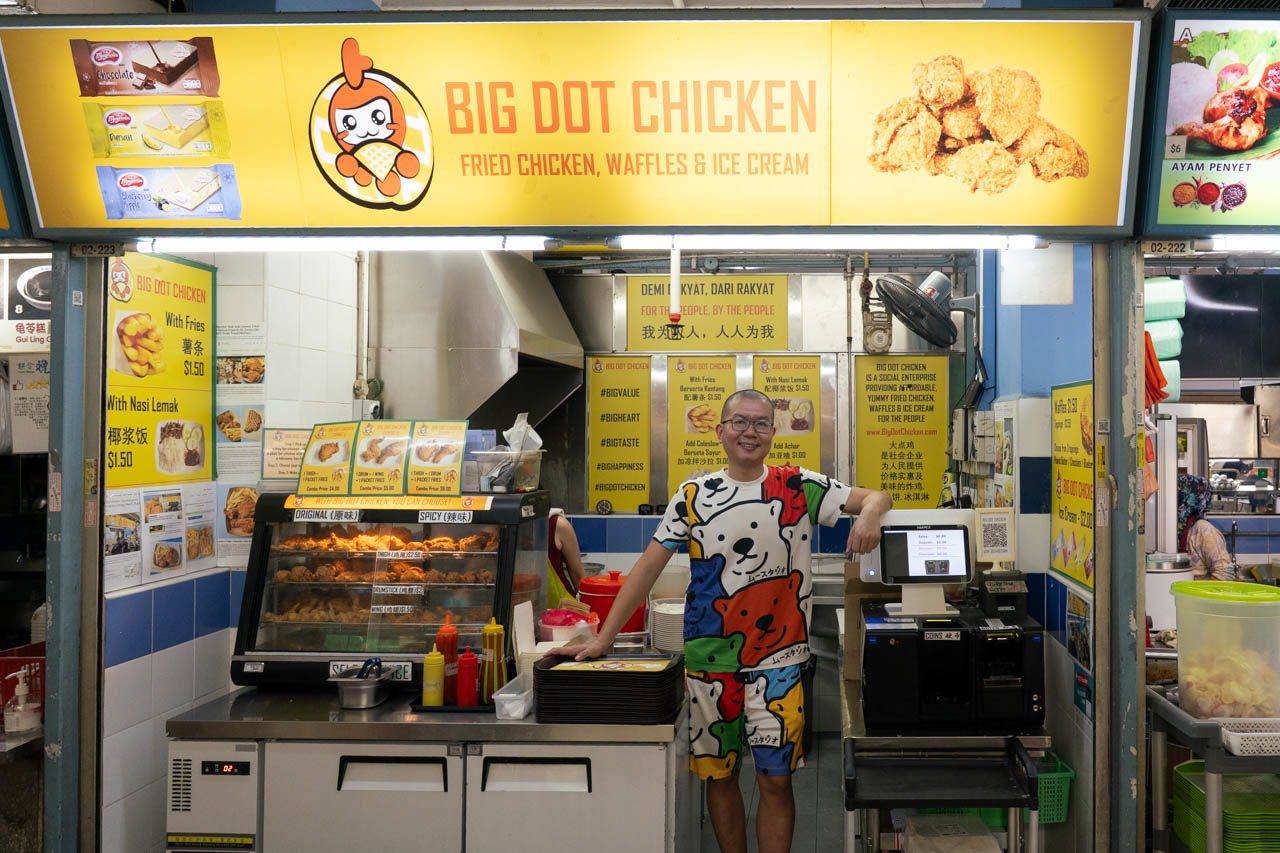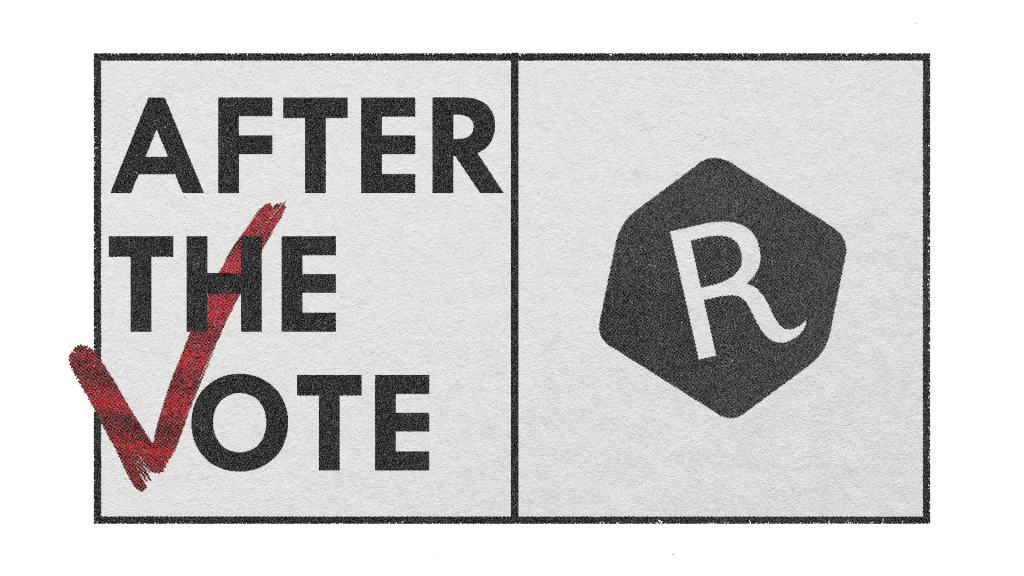
‘After the Vote‘ is a RICE Media series where Singaporeans from all walks of life share their hopes for Singapore—the changes they envision, the values they want to uphold, and the future they want to help shape.
After GE2025, we take a step back to explore the bigger picture: What kind of Singapore are we building together? Through these conversations, we uncover the aspirations and concerns shaping the nation over the next five years and beyond.
The views in ‘After the Vote’ are those of the interviewees and based on their experiences; they do not reflect the publication’s stance.
All images by Justin Tan for RICE Media.
Disclaimer: The RICE team can’t stop thinking about Big Dot Chicken.
Moist, flavour-packed meat. Shatteringly crisp crust. The kind of fried chicken that feels engineered for an addictive comfort.
ADVERTISEMENT
But the real magic lies in its accessibility. Nestled within Chinatown Complex Food Centre, Big Dot Chicken is cheap and halal-certified. You get to pick your own parts. Indeed, chicken that is “for the people, by the people”.
Ken Koh, 41, is one of the co-founders of this stall, sorry, social enterprise. Beyond the succulent chicken is a mission: to create job opportunities for the vulnerable, equipping them with the recipe, tools, and confidence to run their own hawker businesses. For him and his fellow founders, that was always the dream—to turn employees into entrepreneurs.
As we head out to vote today, we’re thinking of policies and promises. But at some point, we need to ask ourselves what kind of Singapore we’re building beyond the ballot box. And Ken has plenty to say about how we could all benefit from a bit more empathy—not just for hawkers, but for anyone who’s trying to build something honest, meaningful, and theirs.
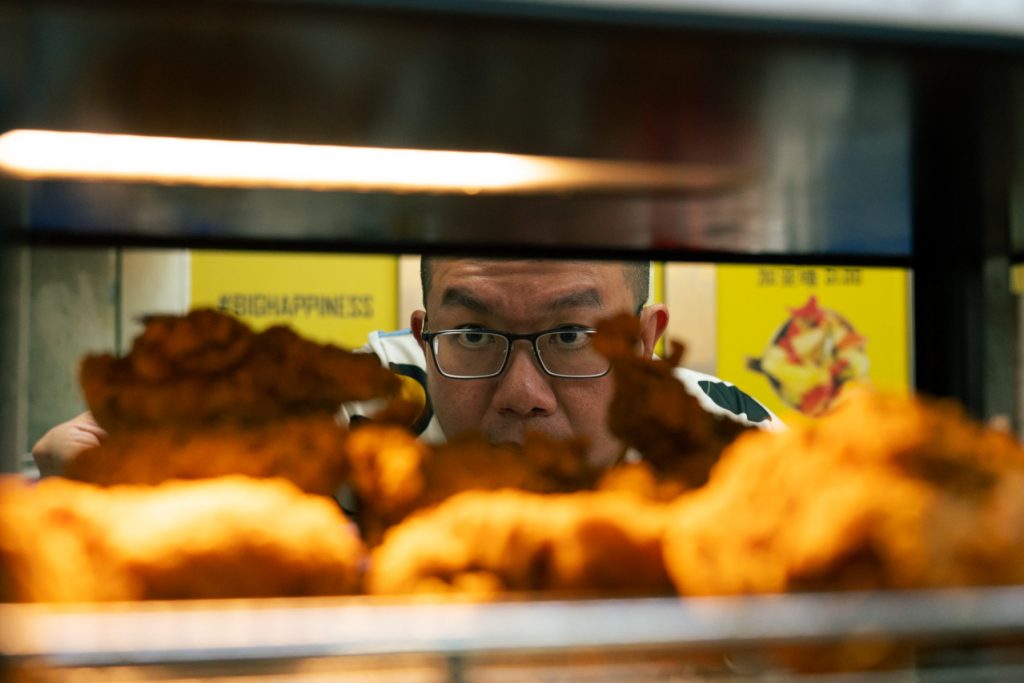
What is one change you hope to see in Singapore by 2030 that would make life meaningfully better for people like you?
One of the things I wish is that hawkers could have bigger stall spaces. Because Chinatown Complex Food Centre—a lot of people don’t know this—it’s actually the biggest hawker centre in Singapore. Over 200 stalls. It’s crazy, man.
ADVERTISEMENT
We have customers who buy in bulk for companies, churches, and community groups. So we need those orders in advance, because every day we have a limited amount of chicken due to our small space. We’re not like KFC. They won’t run out, because they have a central kitchen. Unlimited supply.
For us, it’s limited. Sometimes we sell out by 2 PM, sometimes even 1 PM. It’s hard to say. But as long as we can cover our costs—because we’re not government-funded—I think we’re blessed that we can stand on our own feet. Profit isn’t our main concern.
So if, in future, there could be bigger spaces for larger stalls, with better ventilation, especially with climate change and all that, I think it would help a lot. That way, more people might be open to working in hawker stalls.
Increased connectivity to transport networks like buses and MRTs would help minimise the risk. All hawkers know that rainy or hot weather does affect the number of customers visiting our stalls.
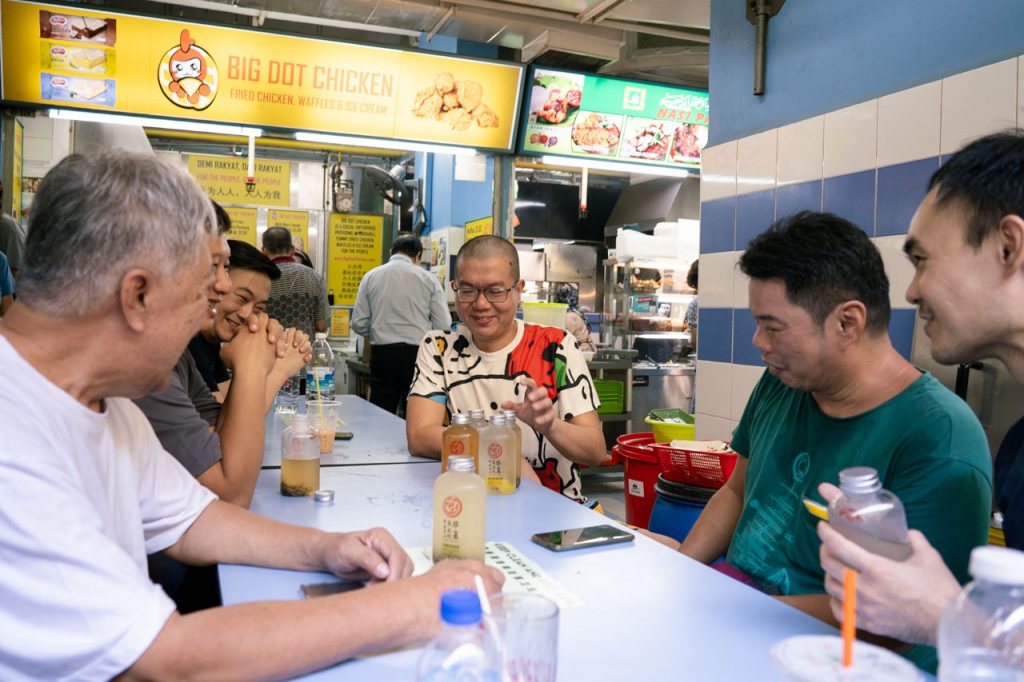
If you could introduce a new national priority for Singapore, what would it be?
I believe we need a society that really values compassion and empathy. We already teach our kids that when they’re young, but I don’t think competition and empathy are mutually exclusive.
You can be competitive, and still empathise—not just with people who are worse off than you, but with everyone. Even empathy for politicians—understanding that they can’t solve everything perfectly.
And that’s partly why we’re doing Big Dot Chicken. I want people to feel empathy that cuts across all levels of society.
When you talk about service, when you talk about serving people, it doesn’t mean you have to be Bill Gates or anyone famous. Even as ordinary Singaporeans, we can come together and understand that eating out is expensive. Some of us have kids. Eating out these days could cost $50 just for four people.
So my point is: how about we start making small changes? A small hawker stall called Big Dot Chicken. Singapore is known as a tiny dot, right? But even a tiny dot can make a big impact—so, ‘Big Dot’ Chicken.
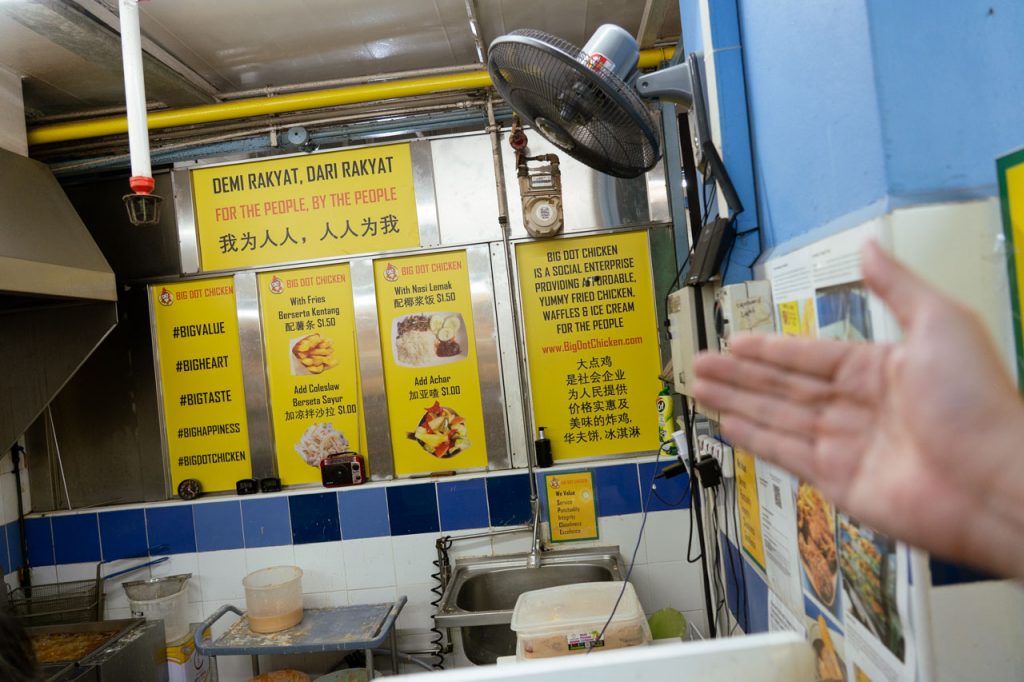
We believe in affordability. The cost of a chicken—if you buy from NTUC Fairprice—is just cents per piece, right? But the rest of what we make goes into things like rent, power, and a bit of profit.
ADVERTISEMENT
So even though my costs have increased, I try to keep the prices where they are. I don’t know how long I can maintain that.
I’m not trying to undercut anybody—this is a hawker stall. If you want aircon, you go to KFC. But here, it’s for people who want genuine, good food.
Same with our pricing—a combo is like $4, $5, $6. It’s affordable. We’re content in the sense that we’re making ends meet, and that’s enough.
Some customers tell me, “Hey, I come to you not just because your food is good and cheap, but because I know how to order”. If you go to fast food places now, it’s all machines—you press screens, and that human aspect is lost, right? Here, you can even choose the chicken parts you want.
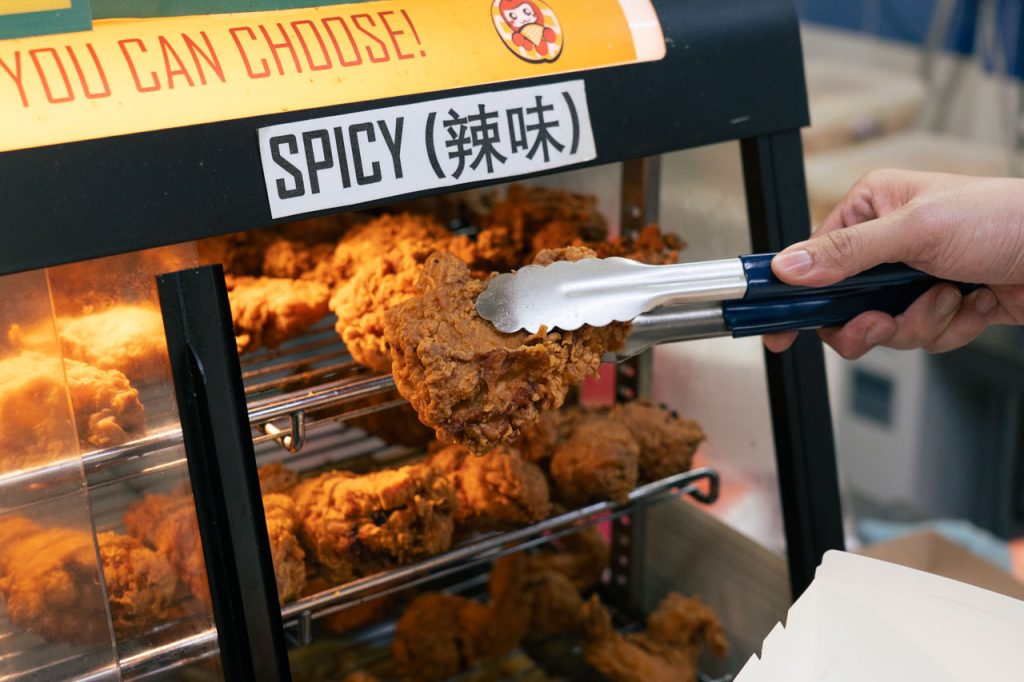
I think it’s because of our human aspect that we have regulars who come every day. I was surprised—they eat fried chicken every day! They buy two pieces and come at a certain time. And it’s that spirit of community we need to slowly build. This street used to be very, very quiet. But now it’s very vibrant.
I think Singapore is moving in the right direction. But Singaporeans don’t have to wait for everything from the government; we can improve things ourselves in our own small way.
What small shift—policy or mindset—could make a big difference in the daily lives of your community?
I’ve learned to really appreciate that in other countries like Australia, people doing technical jobs are very highly regarded. It’s seen as a respected vocation, right?
We could do with the same thing here. The shift in mindset we need is to move away from the idea that hawker food is low quality and being a hawker is not like a ‘no-choice’ kind of job.
The fact is that as hawkers, we do take pride in our food and deliver great quality for the price. Competing with tens to hundreds of other options available in the same hawker centre and nearby coffee shops and food courts within minutes keeps us constantly working to ensure we do our best to give customers the best in order to thrive.
Because of this nature, we hawkers are 100 percent responsible if customers come by only once or if they come back again and become regulars.
Hence, it is in our best interest to deliver the best we can within our resources. You do everything. You clean, prep, cook, serve, and settle the customers. It’s full accountability.
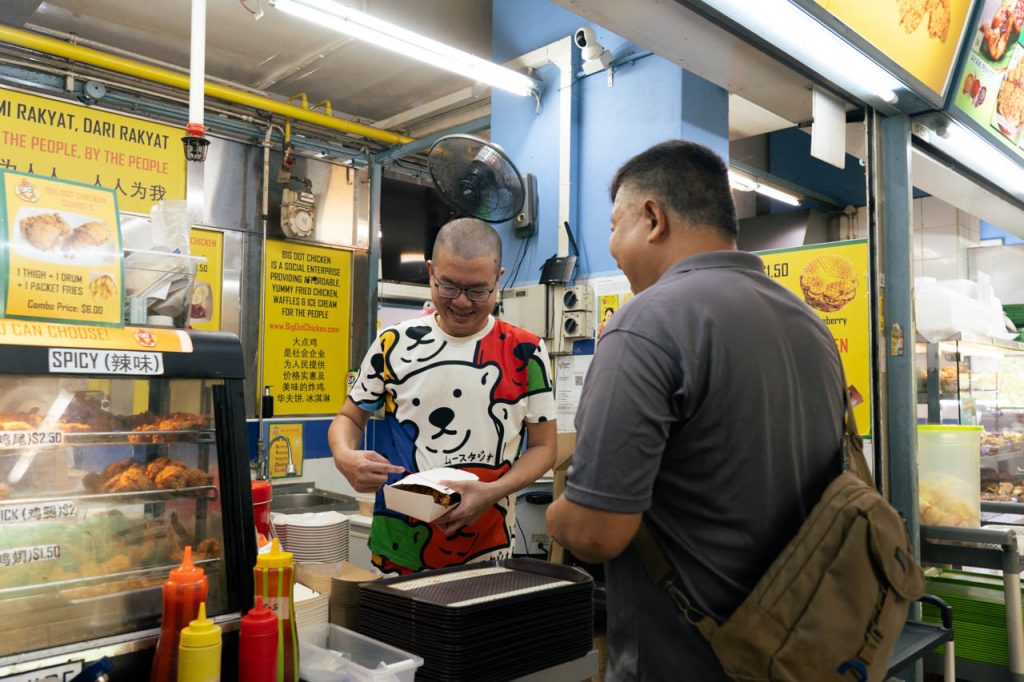
This sole responsibility also ensures we keep our food fresh and hygienic. If I mess up and someone lao sai tomorrow, they’ll come straight back to me because we’re here every single day. That is why you seldom hear of cases of food poisoning happening at hawkers compared to other types of food establishments.
I just hope people can learn to respect that. Not just hawkers, but every vocation—academics, civil servants, even politicians. Every job has its own hidden truths, its own challenges that outsiders won’t always understand.
Sometimes my friends come by just to check out what I’m doing. “Eh, are you really running a hawker stall?”
They’re just joking around, sure, but to me, it reflects something deeper about how we view different types of work.
So what if you’re a hawker? So what if you’re a cook? Why is it that only a ‘chef’ seems to command respect? Just because you’re not working in a Michelin-starred restaurant doesn’t mean your work is any less meaningful.
Respect and appreciation—it all ties back to empathy, lah.
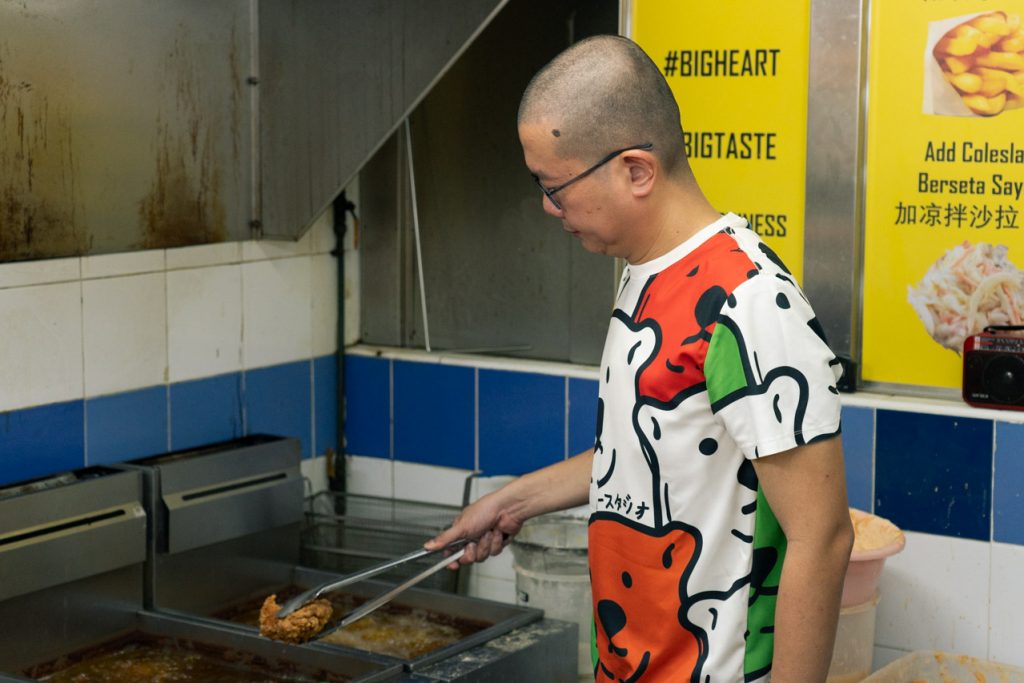
Singapore moves fast. What’s one thing we need to slow down for?
I think our country is already amazing. We’re top in academics, in whatever global rankings you want to find—finance, healthcare, all of that.
We’re already at the top, right? And there’s no way that’s going to change, because it’s already part of our culture. Students go for tuition. Even though we say tuition isn’t important, everybody still goes. These things, we can’t really change.
Slowing down isn’t about hitting the brakes. It’s about recognising that life is more than academic or financial success—and that living fully means growing into empathetic, relational humans capable not just of surviving, but also of love and care.
What’s one thing about Singapore you’d want to protect for the future?
You see a lot of entrepreneurship happening these days, where young people are starting cool ice cream shops and things like that. It speaks to something very innate in our culture—our Singaporean culture. Our love for good food.
I’ve always liked how much fusion food we have here—people don’t realise just how deeply mixed our food culture already is, shaped by generations of different cuisines and communities coming together.
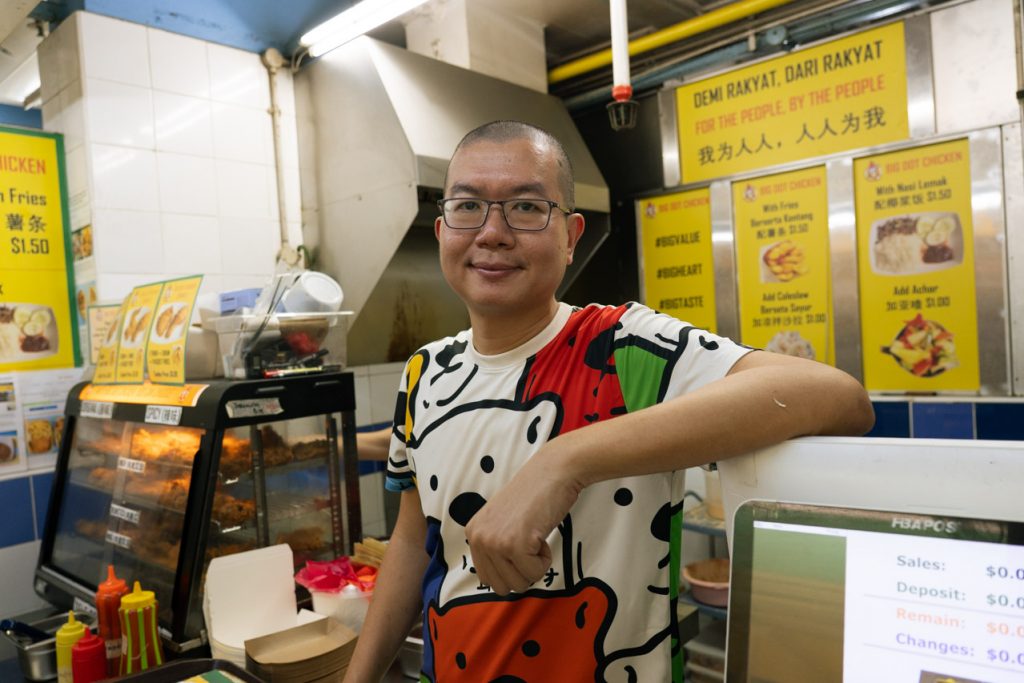
So, how can we preserve and appreciate the new wave food entrepreneurs emerging today? A lot of young people are trying to launch their own fusion concepts, but many don’t last—not because the food isn’t good, but because they don’t get the support they need.
If we gave them a real fighting chance, these young hawkers could completely redefine something as familiar as chicken rice. They could be using new techniques, flavours, or ingredients.
At the heart of it is empathy—giving people a shot. Personally, when I see a new stall, I make it a point to visit once, then again, maybe a third time. But if I return a fourth time, it means I genuinely love the food.
If more of us made that kind of effort, we wouldn’t just be supporting individuals. We’d be shaping a hawker culture that’s bold, evolving, and built to last.
In 2030, what kind of Singapore would you be proud to call home?
A Singapore that not only provides different paths to success in careers but also has people who show empathy, respect, and appreciation for everyone.
And of course, a nation that offers good food at affordable prices.

